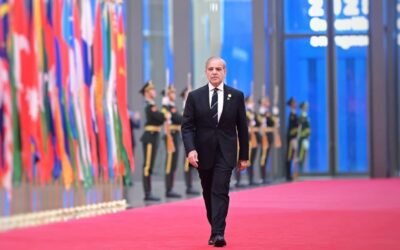PESHAWAR, August 2025 — The Khyber Pakhtunkhwa (KP) government has launched a major education reform plan to outsource 1,500 government primary schools to private, preferably non-profit, organizations. The initiative, approved by Chief Minister Ali Amin Gandapur, aims to address the issues of low enrollment and poor academic performance in under-utilized schools.
پنجاب کے بعد KP حکومت کا بھی سرکاری اسکول اۤوٹ سورس کرنے کا فیصلہ۔ ڈان رپورٹ کے مطابق خیبرپختونخوا حکومت 1500 پرائمری اسکول نجی اداروں کو دے گی۔ حکام کے مطابق محکمہ تعلیم وزیراعلیٰ علی امین گنڈاپور کے احکامات پر اقدام اٹھارہا ہے۔ اقدام کی وجہ کم انرولمنٹ، ناقص تعلیمی پرفامنس… pic.twitter.com/PiUyJUYpab
— Kismat Khan (@KismatZimri) August 30, 2025
Key Features of the Plan
- Target Schools: According to official data, more than 4,100 government schools in KP have fewer than 40 enrolled students. These schools are considered under-utilized and will be prioritized for outsourcing.
- Scope of Phase One:
- 500 schools in the merged tribal districts.
- 1,000 schools in other districts of KP.
- Government’s Role: The state will continue to provide buildings, free tuition, textbooks, and security staff. Current government teachers will be re-posted to other schools and will not lose their jobs.
- Private Sector’s Role: Selected organizations will be required to meet key performance indicators (KPIs), the most important being to raise enrollment to at least 180 students per school within a year. They will also be responsible for improving teaching practices and accountability.
Public-Private Partnership Model
The outsourcing move falls under a public-private partnership (PPP) model. The KP government argues that this approach will ensure efficiency, improve standards, and make better use of public resources. Officials have also clarified that continued investment will depend on schools meeting performance benchmarks.
Reactions and Criticism
- Opposition Concerns: The decision has triggered backlash from opposition parties and teachers’ associations. Critics argue that outsourcing amounts to the government admitting failure to run the education system effectively.
- Ahmed Kundi of the Pakistan Peoples Party (PPP) Parliamentarians submitted a call-attention notice in the KP Assembly, calling the move a “betrayal of the education emergency” slogan.
- Teachers’ Associations: Many fear the shift could commercialize education and weaken the promise of free, universal schooling for low-income communities.
- Policy Comparisons: Similar outsourcing models have been tried in other provinces, including Punjab and Sindh, where results have been mixed but often tied to efforts to address low enrollment and exam performance.
What It Means for KP
Supporters of the initiative argue that outsourcing will revitalize struggling schools by bringing in innovation and accountability, while critics warn it could create inequality in access and undermine the state’s role in guaranteeing free education.
You May Like To Read:







